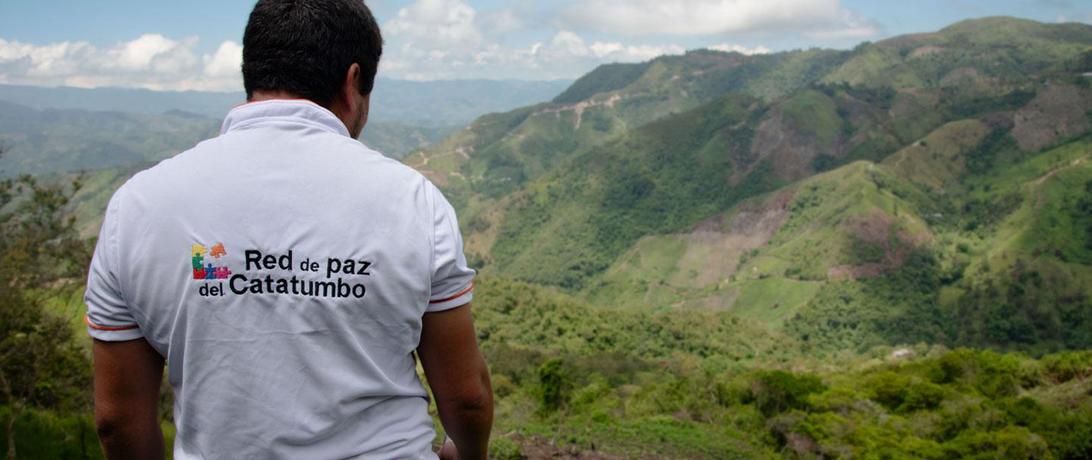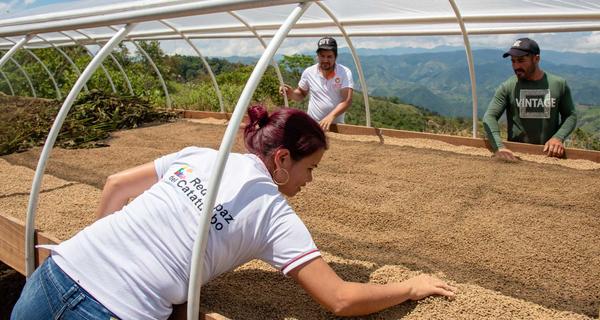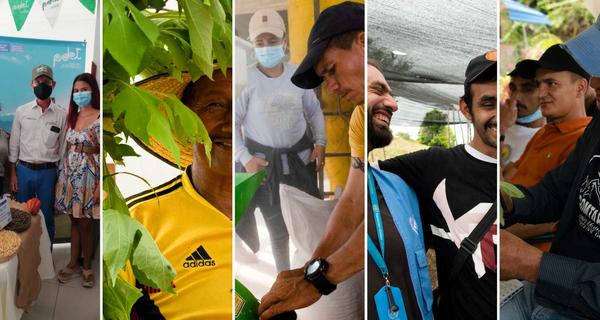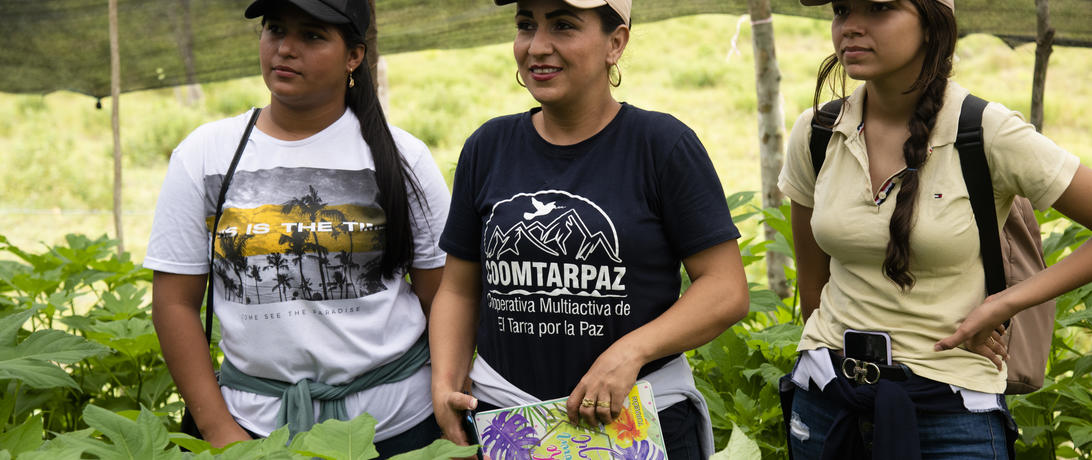
The Agency for Reincorporation and Normalization (ARN) accompanies the fourth tour of the Catatumbo Peace Network, led by PASO Colombia. Associations of peace signatories and campesino communities lead biofactory projects within the framework of this Network, which has the support of key partners in the territory and whose commitment is aimed at giving sustainability to local agricultural projects.
Original article (Spanish version) published by the Agency for Reincorporation and Normalization (ARN):
• "The Catatumbo Peace Network brings together seven reincorporation associations and campesino cooperatives in the Norte de Santander department.
• The initiative is led by PASO Colombia - One Earth Future Foundation's program, along with the support of actors such as the United Nations Verification Mission, the Francisco de Paula Santander Ocaña University (UFOS) and the Agency for Reincorporation and Normalization (ARN).
• The fourth tour of the Catatumbo Peace Network took place between October 17 and 20 in the municipalities of Ocaña, San Calixto, El Tarra and Tibú.
PASO Colombia, a program of the One Earth Future Foundation, has been leading the Catatumbo Peace Network along with various peace signatory associations. The network is supported by local, national and international actors such as the UN Verification Mission, the Francisco de Paula Santander Ocaña University (UFPSO) and the Agency for Reincorporation and Normalization (ARN). The Catatumbo Peace Network is a strategy in which peace signatories and campesino communities in Norte de Santander are advancing their processes through bio factories where they produce animal food concentrates, which are then marketed to members of the network and other campesino families, who benefit from lower prices and environmentally friendly products.
What are the bio factories in which the peace signatories and the communities in Norte de Santander work in?
The peace signatories, along with the campesino communities, are promoting the bio factories project. These factories produce hand-made animal feed and biofertilizers that are then marketed locally. This biofertilizer is used as raw material for local crops, using agricultural by-products that are normally discarded.
Laura Cuellar, advisor to the ARN's General Directorate for Strategic Alliances with the Private Sector, said, "ARN came to support the Catatumbo Peace Network Tour. This is a bet that PASO Colombia has been leading with different associations of peace signatories, campesino communities, and other strategic actors in the territory, such as the Verification Mission and the Francisco de Paula Santander University (...) we came to learn more about this model that has been developed in the territory and to continue strengthening this process in Catatumbo. We also want to see how we can become partners in the Guaviare Peace Network and how we can strengthen the different productive and associative processes in the territory, working hand in hand with actors such as PASO Colombia," she said.
She explained that the cooperatives of signatories and campesino communities in Catatumbo are facing high costs of animal food concentrates, and it is because of this that they are able to produce and sell to the cooperative's members at lower prices through the biofactories. Bio factories can also meet the community's demand for concentrates at lower prices. "In the Peace Network, the collective is not thought of from the cooperatives as isolated units, but as part of a solidarity economy network that is interconnected in the territory," added Laura Cuellar.
"The Catatumbo Peace Network is demonstrating that we are committed to peace": Peace Signatory.
For Jhon Orozco, Peace Signatory and Manager of the Multiactive Cooperative of El Tarra for Peace (COOMTARPAZ) this has been a great life opportunity. After the signing of the Final Peace Agreement and the laying down of arms, they have worked jointly with the communities. These projects are demonstrating that they are committed to peace within the territory and the country.
"We have always said that we, as signatories of the peace agreement, are committed to the communities. Our commitment is to help strengthen the communities. If we are food producers, chicken producers, we can offer this product at a low cost so that the farmer can generate more income because if they were going to buy it more expensively, the farmer would be discouraged and would not be able to produce," Orozco said.
"So, we have already reached agreements with some communities, so they become producers of cassava and corn. The cooperatives have made a commitment with these communities to buy the raw material from them and to maintain stable production. So, if we buy the raw material directly from the farmer, we are helping the farmer, we are motivating him". Jhon Orozco pointed out.
What has been the experience of working between communities and peace signatories?
"It has taught us and them to understand, because there is a lot of stigmatization. This process has taught us, as a community, that there are many explanations and many motivations. And this process has been very difficult, and it has been gratifying, too." "We have already created three bio factories. The first was AGROINCAT in Tibú, on this tour, PASO Colombia delivered machinery to COODEPAZC in San Calixto, to COOMTARPAZ in El Tarra and the UFPS helped us certify 80 of the members of the associations that we had been training in concentrated food production," said Sandra Durán, legal representative of AGROINCAT and PASO Colombia extensionist.
Interesting Facts:
- In Norte de Santander, 464 collective and individual projects have been approved, benefiting 586 people.
- 461 individual projects approved, benefiting 536 people.
- 3 collective projects approved, benefiting 50 people."
Article Details
Published
Written by
Topic
Program
Content Type
In the media


